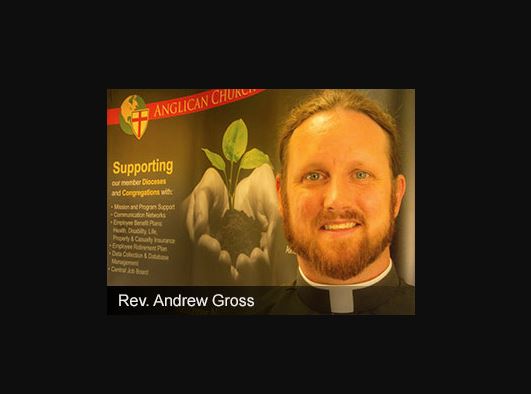Although the press in South Sudan ran the news when it occurred, it was only recently learned that the Province South Sudan consecrated the first female bishop in Gafcon. The Rt. Rev. Elizabeth Awut Ngor was consecrated assistant bishop of the Diocese of Rumbek in the Province of South Sudan in December 2016, breaking a Gafcon moratorium on female bishops. Once word was out, Gafcon issued a statement revealing that the Gafcon primates first learned of the consecration in April 2017. The communique from that meeting makes no mention of the consecration, nor does any subsequent Gafcon communication.
Yesterday a press release from ACNA (Anglican Church in North America) addressed why Gafcon took no initiative to make news of the consecration public. Its author is the Rev. Canon Andrew Gross, Canon for Communications and Media Relations of ACNA. He has also served as Gafcon’s spokesperson.
ACNA’s press release is reproduced in full below. It has not appeared on ACNA’s website.
Anglican.Ink recently reported on the story of the consecration of a female bishop in South Sudan. (You can read more about that story here.) In the related Anglican Unscripted episode, questions were raised about why Gafcon did not break the story. Specifically, reporter George Conger asked, “What was Gafcon thinking? Were they trying to hide this? I’m not perturbed about the issue itself. I’m exercised about why they tried to keep it quiet.”
I have the highest respect for George Conger and Kevin Kallsen, and value their journalism. They do a great service to the Anglican world, and they deserve answers to those questions. I am writing to explain what Gafcon did (and did not do) and why.
Gafcon’s actions are not the result of a conspiracy of silence, or incompetence, but rather the recognition that a Christian press and a Christian renewal movement have distinct, but complimentary callings.
First, let me dispel any conspiracy theories out there. There wasn’t a pact amongst the Gafcon Primates to keep the consecration in South Sudan a secret. None. The Primates were perfectly free to talk about the event at any time. Second, there has been the suggestion that perhaps there was incompetence; a kind of wishful thinking that the event would never be known. That’s not what happened either. Gafcon knew that South Sudan’s news would become public knowledge, but it was South Sudan’s news to break, not ours.
The decision tree was straightforward:
- Is this newsworthy? Yes.
- Is the news going to come out eventually? Yes, it is inevitable.
- Is it Gafcon’s job to break controversial news from one of our provinces? No, it’s the responsibility of that individual province, or the press, or both.
In hindsight perhaps Gafcon could have encouraged the South Sudanese Provincial office to make a statement proactively, but, because the situation in South Sudan is so messy and the pressures so huge, we waited. Gafcon certainly never felt threated by Anglican.Ink breaking the story. They were doing their job. We value them doing their job. Light is the best sanitizer.
Only after the press had done their job was it appropriate for Gafcon to speak. In his statement, Archbishop Jensen clearly laid out the timeline by explaining what happened and when. (You can that statement here.) Anglican.Ink shed light on the story, and that provided the opportunity for Gafcon to shed more light on the story.

